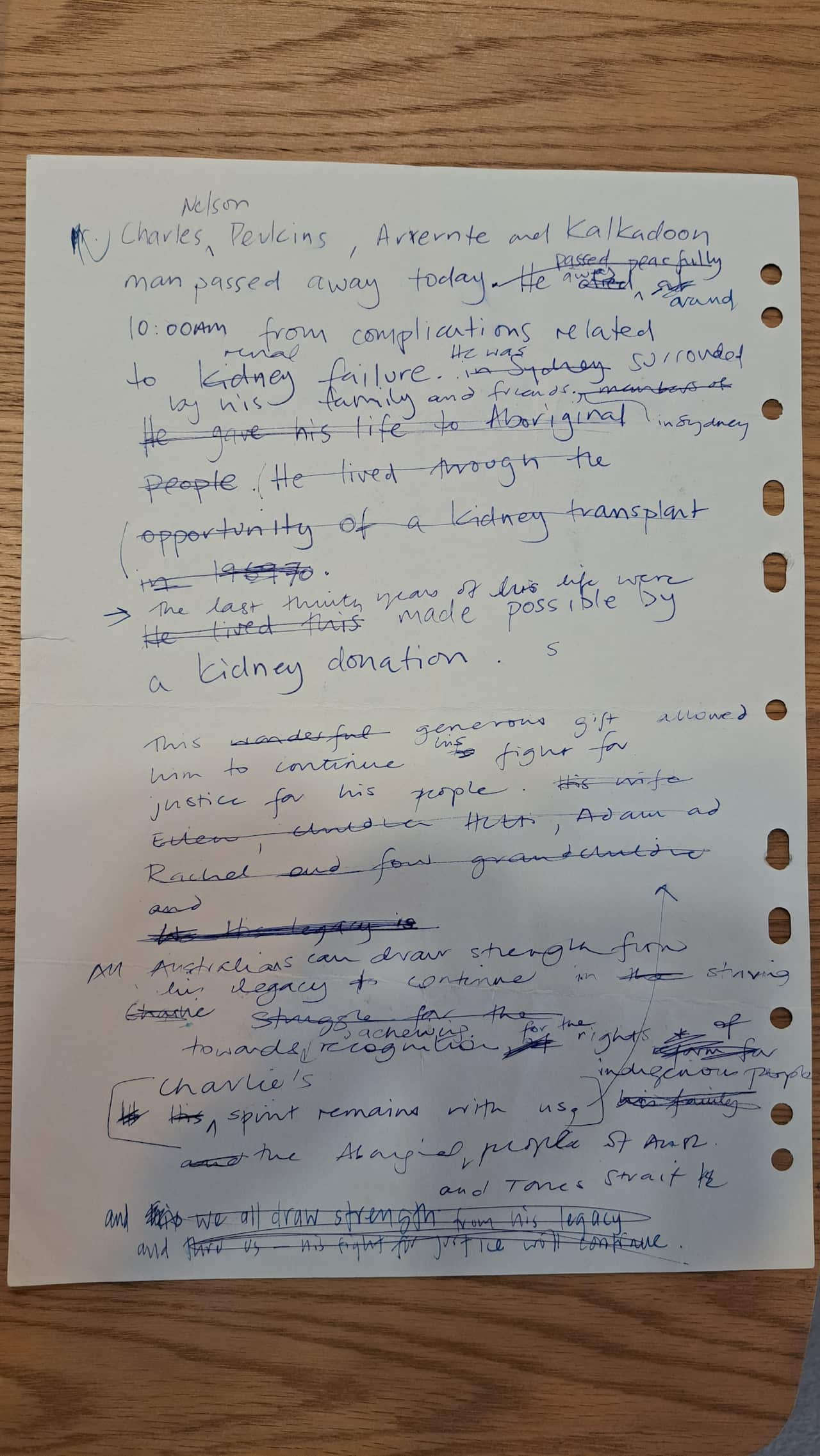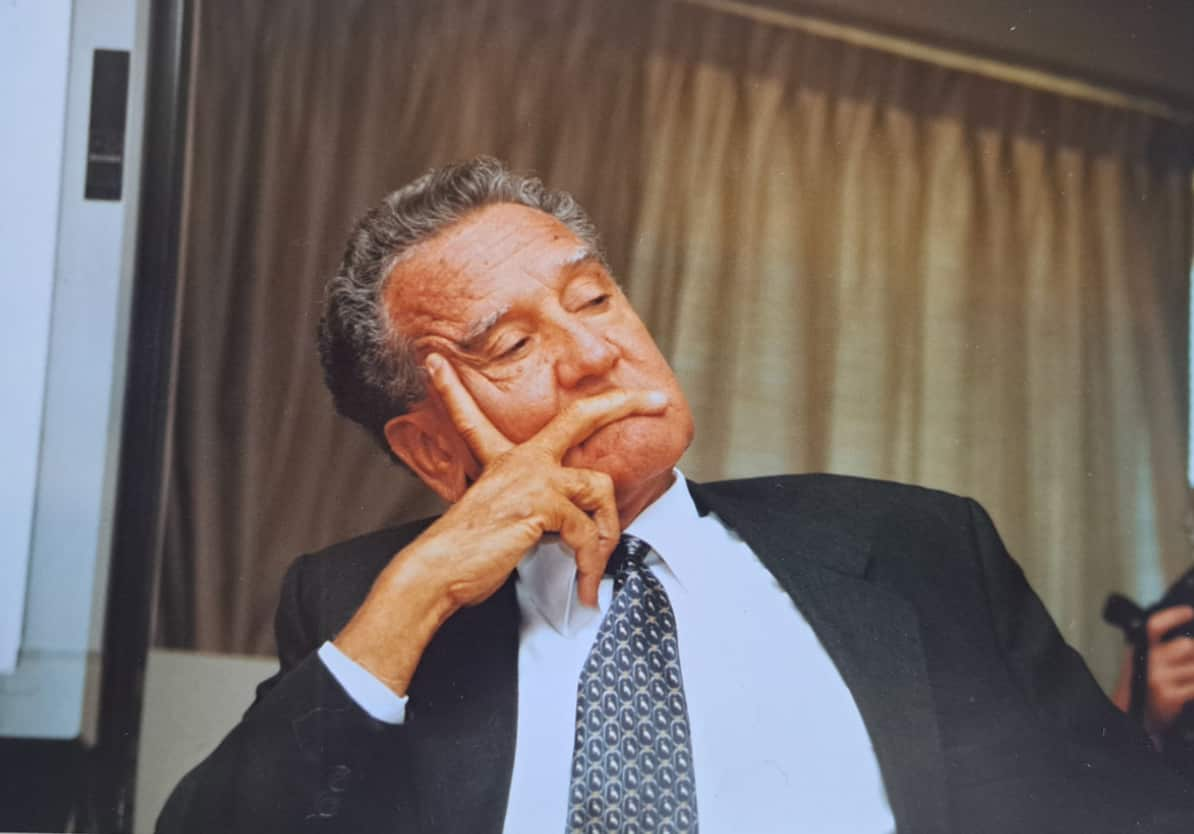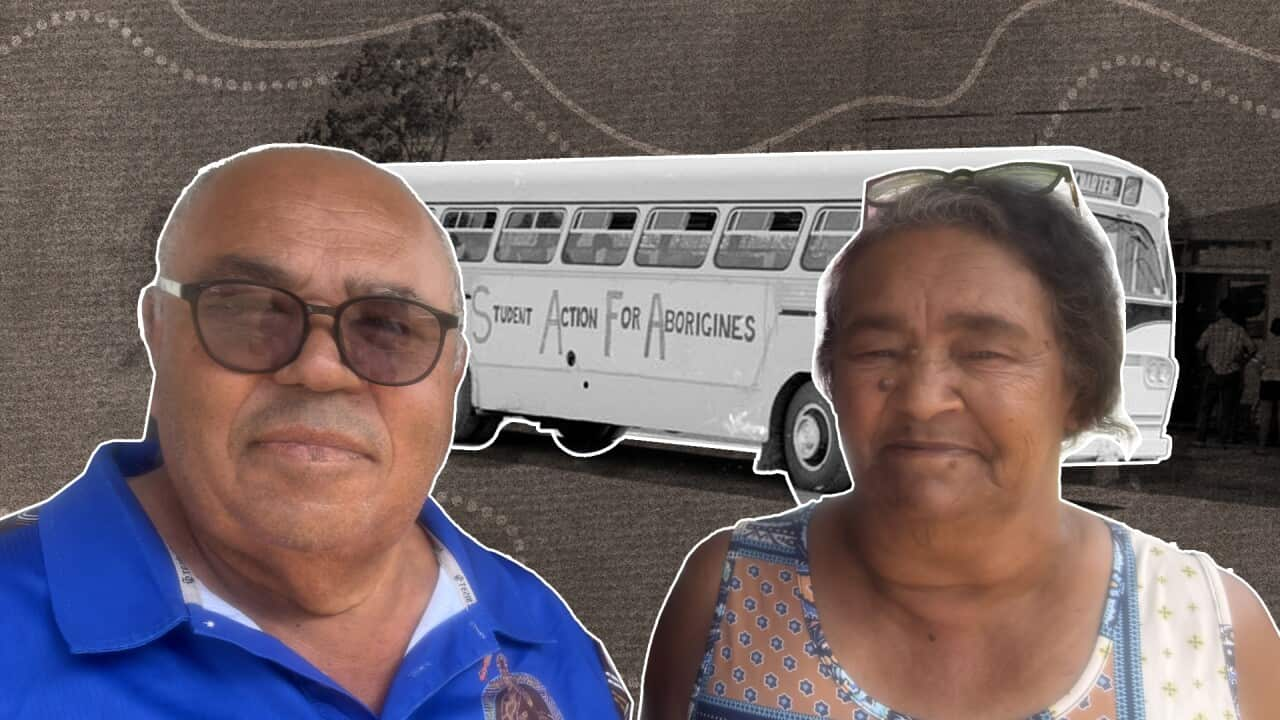This article contains references/and or images of a deceased Aboriginal person.
Twenty-five years ago today, I was working at the Sydney 2000 Summer Paralympic Games with a team of other Indigenous media representatives — an unforgettable moment in our nation's sporting and cultural history.
On the way out to Homebush on the morning of 18 October, my phone rang.
It was my boss in Canberra with heartbreaking news — Aboriginal leader Dr Charles Perkins had passed away after a three-month illness.
He asked me to divert to a Sydney hospital to assist the Perkins family with the wave of media calls and enquiries that were already coming in.
At the time, Perkins was a Commissioner with the Aboriginal and Torres Strait Islander Commission (ATSIC), where I worked, although my family had known the Perkins family since the late 1970s.
I met the family at the hospital, took over the media requests, and later that day we gathered at their inner-city home.
Over the following hours, countless friends, extended family, community leaders and people from all walks of life came by to offer condolences and support to his wife Eileen and their children — Hetti, Rachel and Adam.
Perkins' passing led the national news that day across print, television and radio.
The family decided to make a statement later that afternoon to the increasing number of media outlets now camped outside the family house.
Hetti, Rachel, Adam and I adjourned to the study to draft the words that would be shared publicly.
It was a moment heavy with emotion, as the family sought to honour their father with dignity while facing an overwhelming outpouring of grief and attention from across the country.
How does a short statement encapsulate his extraordinary life?
Perkins was such a fearless spokesman and renowned activist for Aboriginal rights — many referred to him as Australia's Nelson Mandela for his similar fight against racial discrimination and for civil rights.

He was born at the Alice Springs Telegraph Station Aboriginal Reserve in the Northern Territory in 1936.
At the age of 10, he was sent to a home for boys in Adelaide, where he completed his schooling.
A talented soccer player, Perkins played as a professional with English club Everton.
On his return to Australia, he played with the Croatian club, Adelaide and the Pan-Hellenic club, Sydney.
While studying at the University of Sydney, Perkins became increasingly active in Indigenous rights issues.
In 1965 he gained notoriety by leading a group of fellow students on the Freedom Ride — a tour of rural NSW centres to highlight the discrimination that existed for Aboriginal and Torres Strait Islander peoples in many country towns.
Perkins was one of the early leaders for Aboriginal rights and will be particularly remembered for leading the freedom rides in the 1960s.
The Foundation for Aboriginal Affairs in Sydney, which Perkins played a significant role in establishing in the 1960s, spawned a new generation of Aboriginal activists.
Perkins combined activism and public service into one.
His appointment as the first Indigenous senior executive in the Australian Public Service in the 1970s, his leadership as a departmental head and chairperson of the Aboriginal Development Commission in the 1980s, and his work as ATSIC commissioner all confirmed his place in the forefront of modern Australian history.
At the age of 55, he was initiated as an Arrernte wadi, a man at the beginning of his journey.
For his children, his bureaucratic achievements spoke for themselves — they wanted their words to focus on the gift of a kidney that extended their dad's life.
At the time of his passing, Perkins was the longest post-transplant survivor in Australia.
Statement in hand, we walked out to face the large media pack that had gathered outside their house.
Cameras, microphones, and reporters filled the street. Aboriginal leader Christine Williams, then deputy chair of ATSIC's Sydney Regional Council, spoke first.
Williams reflected on knowing Perkins since she was 11 years old, saying: "He ruffled and plucked some feathers, whatever had to be done. He was listened to because he said it with a heart and he meant what he said — and he walked alongside his people, not above them."

The Perkins children huddled together, standing side by side — stoic, proud, and with a quiet strength.
Then his eldest daughter Hetti spoke.
"Dr Charles Nelson Perkins, Arrernte and Kalkadoon man, passed away today at about 10am from complications related to renal failure," she said.
"He was surrounded by his family and friends in Sydney.
"The last 30 years of his life were made possible by a kidney donation. This generous gift allowed him to continue his fight for justice for his people. All Australians can draw strength from his legacy to continue in striving towards achieving recognition for the rights of Indigenous people," she continued.
"Charlie's spirit remains with us, the Aboriginal and Torres Strait Islander people of Australia," Hetti concluded.
Cameras flashed as we returned to the house.
To this day, Perkins is still remembered as a man who dedicated his life to achieving justice for Aboriginal and Torres Strait Islander people in Australia, a renowned activist, fearless spokesperson; a man who loved his culture and his family.
He never backed down from his beliefs, nor compromised them.
He fought tirelessly for Indigenous rights, equality, and self-determination.
His courage, leadership, and vision helped transform Australia's understanding of justice and reconciliation, leaving a powerful legacy for future generations.
Perkins was buried with a state funeral on 25 October at Sydney Town Hall.
On the inside of the service booklet from his state funeral was a quote that remains just as relevant today.
It read: "My expectation of a good Australia is when white people would be proud to speak an Aboriginal language, when they realise that Aboriginal culture and all that goes with it, philosophy, art, language, kinship, is all part of their heritage. And that is the most unbelievable thing of all, that it's all there waiting for us all. White people can inherit 40,000 or 60,000 years of culture, and all they have to do is reach out and ask for it."
Those words continue to resonate — a reminder of the enduring impact of Charles Perkins' fight for equality and justice, and of the unfinished work that still lies ahead.
Dr Charles Nelson Perkins AO — the champion of champions — was aged 64.
For the latest from SBS News, download our app and subscribe to our newsletter.



